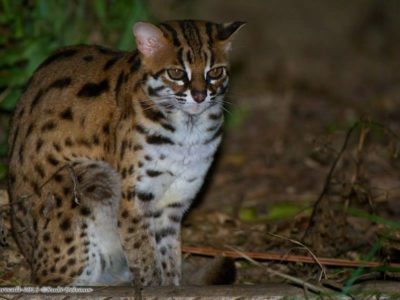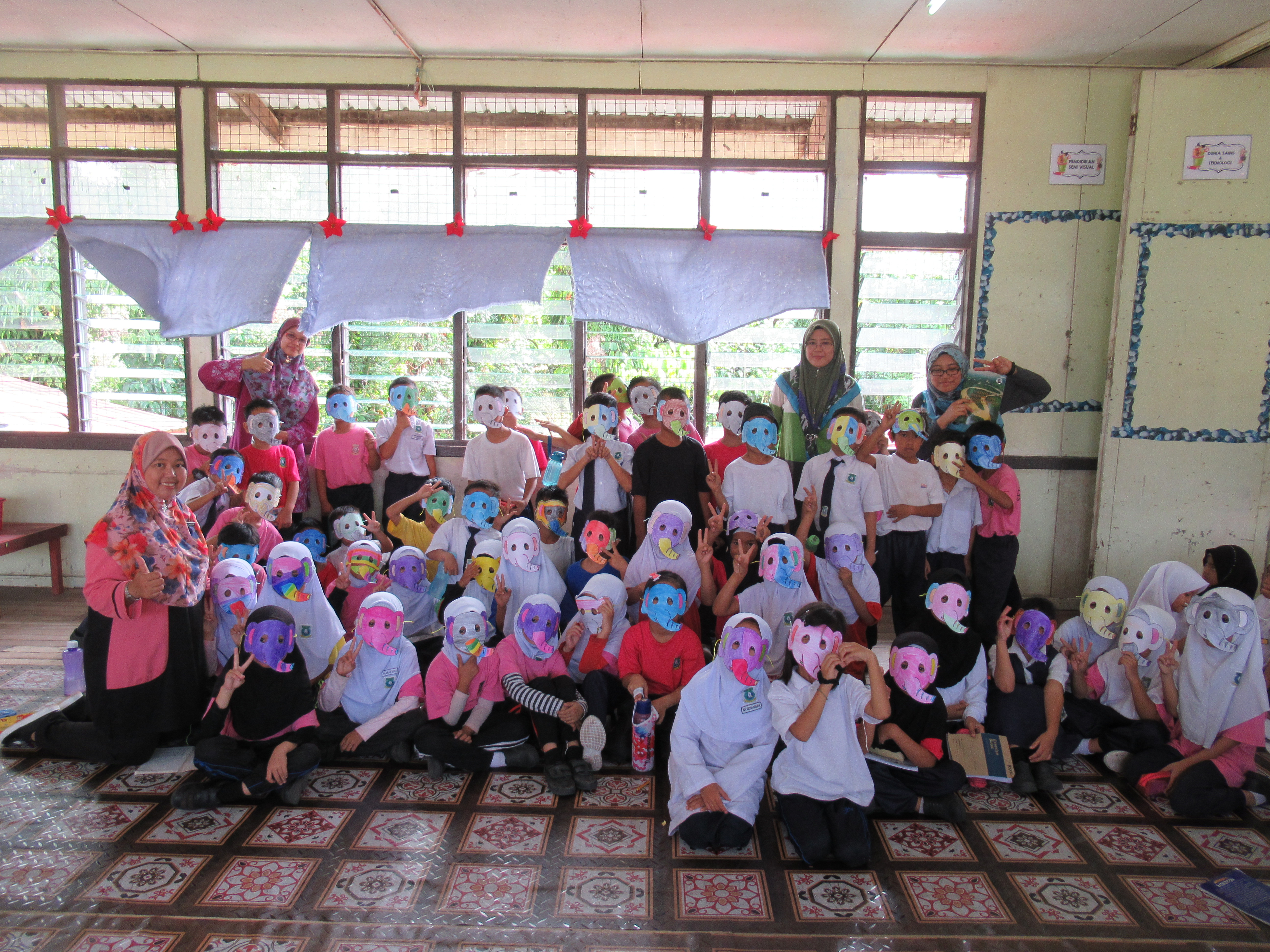Leopard cat satellite tagged in the Kinabatangan
Leopard cat satellite tagged in the Kinabatangan
A joint press release from Sabah Wildlife Department and Danau Girang Field Centre
Kinabatangan: A wild female leopard cat was caught and fitted with a satellite collar in the Kinabatangan, as part of Danau Girang Field Centre’s (DGFC) Carnivore Programme, a collaborative project with the Sabah Wildlife Department (SWD). The animal was caught and satellite-collared during a night survey in Pendirosa estate (Felda Global Venture Co.).
“The procedure was very successful. The team worked well together and we collected samples and fitted a satellite collar on a young female leopard cat. We called her “Ratu”, meaning “Queen” in Malay,” said Dr. Macarena Gonzalez, wildlife veterinarian at DGFC.
“Ratu is the first leopard cat collared as part of this project. Hopefully we will be able to catch and collar more leopard cats to study their movement through this fragmented landscape, and to understand how they use it. Movement data will assist us in understanding how such a resilient species utilizes both landscapes: forest and oil palm plantation,” said Dr. Miriam Kunde, project leader and carnivore conservation officer at DGFC.
The Carnivore Programme goes in tandem with DGFC’s Health at the Edge Project (H@EP), led by Dr. Sergio Guerrero-Sanchez and Dr. Liesbeth Frias, Research Associates at DGFC. “Our project aims to tackle health-related problems from an integrated ecological, veterinary and human health approach. For this particular component of the project, we are targeting leopard cats as sentinels to assess the potential effects of anthropogenic disturbance on the health of Bornean cat populations,” explained Dr. Frias. “Leopard cats can be found inhabiting a broad range of habitat types, including oil palm plantations. By using them as a model species, we aim to assess cross-species transmission at the wildlife-human interface, as their home ranges can potentially overlap those of domestic carnivores in plantations, and those of more vulnerable cats in adjacent forests,” added Dr. Guerrero-Sanchez.
Both projects are supervised by Dr. Benoit Goossens, DGFC’s Director and Professor at Cardiff University. “A better understanding of the movements of this wild felid will help us evaluating the impacts of habitat fragmentation and quality in ranging patterns of this species in the Kinabatangan landscape. Leopard cats, and the potential for disease transmission between them and domestic animals, provide a relevant model to evaluate the potential health risks threatening other species, such as flat-headed cats and marbled cats”, said Dr. Goossens. “We would also like to take this opportunity to thank Pendirosa estat management for their continuous collaboration on this project and the main sponsors of ou Carnivore Programme and H@EP: Ocean Park Conservation Foundation Hong Kong, Sime Darby Foundation, Houston Zoo and Panthera,” concluded Dr. Goossens.
_______________________________________________
For more information on this press release, please contact:
Dr Benoit Goossens
Danau Girang Field Centre
goossensbr@cardiff.ac.uk / 012-836 4005
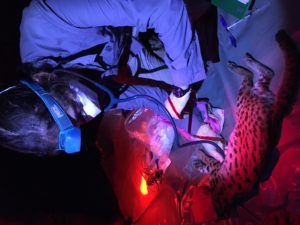
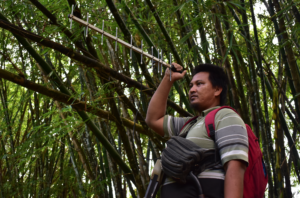






DGFC’s education team goes to Kudat!
From 23rd to 25th April, our education team travelled to Kudat for its first Wildlife Awareness and Education Outreach Programme 2019 at three schools in the district, namely SK Matunggong, SK Sikuati and SMK Sikuati II.
We planned this programme with the main objective of raising awareness and understanding of the Wildlife Conservation Enactment 1997, as well as to inspire school students to become future leaders in the conservation of wildlife in Sabah. The education teams from the Sabah Wildlife Department and HUTAN also joined us in this programme to share their knowledge and experience in wildlife conservation.
Altogether, the teams received a very warm welcome and an enthusiastic response from over 950 students from the 7 - 17 years old age groups. The younger kids participated in the making and colouring of elephant masks, guessing animal sounds and acting out wildlife behaviours, while the older ones were involved in wildlife talk sessions and interactive activities. We also screened the Borneo Jungle Diaries Season 2, focusing on the pangolin, elephant, clouded leopard and hornbill episodes.
We would like to thank Jabatan Pendidikan Negeri Sabah and Pejabat Pendidikan Daerah Kudat for allowing and entrusting us to carry out this programme. We greatly appreciate the excellent cooperation and continued support from Sabah Wildlife Department and our friends at HUTAN. Our biggest thanks and appreciation go out to the schools’ students and teachers for making our programme a rousing success.
Thank you, Kudat! Next, our team will be going to schools in Kota Marudu in May, Kota Belud in June and Penampang in July.

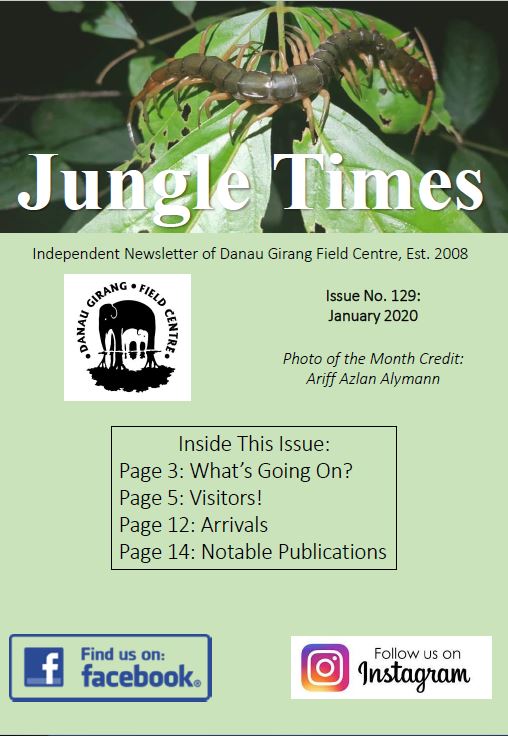 January 2020
January 2020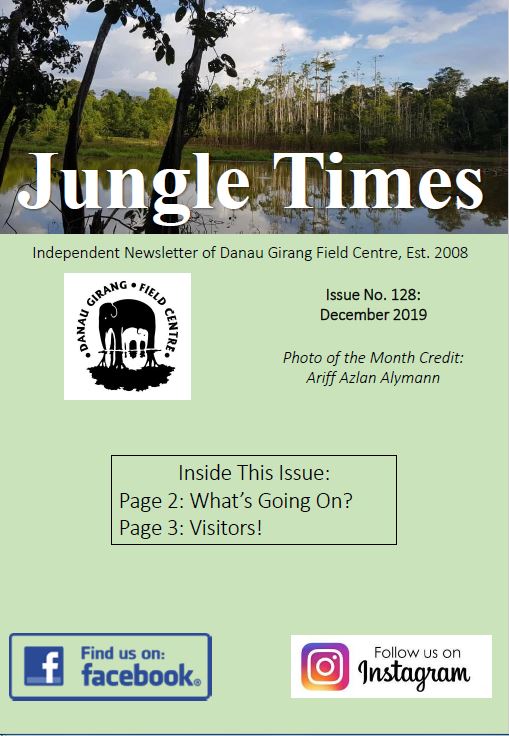 December 2019
December 2019 November 2019
November 2019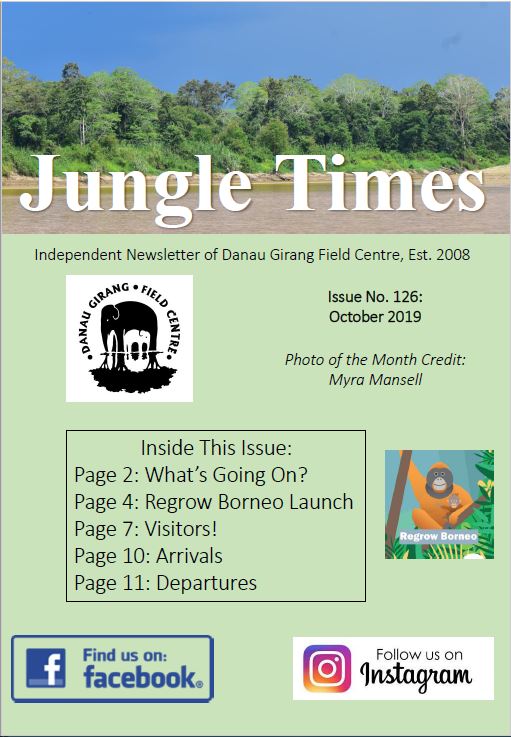 October 2019
October 2019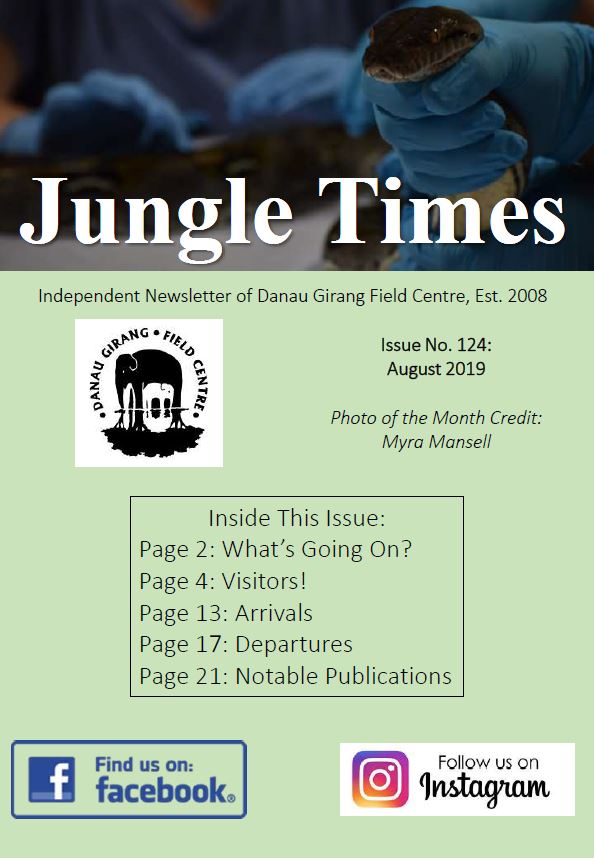 August 2019
August 2019 July 2019
July 2019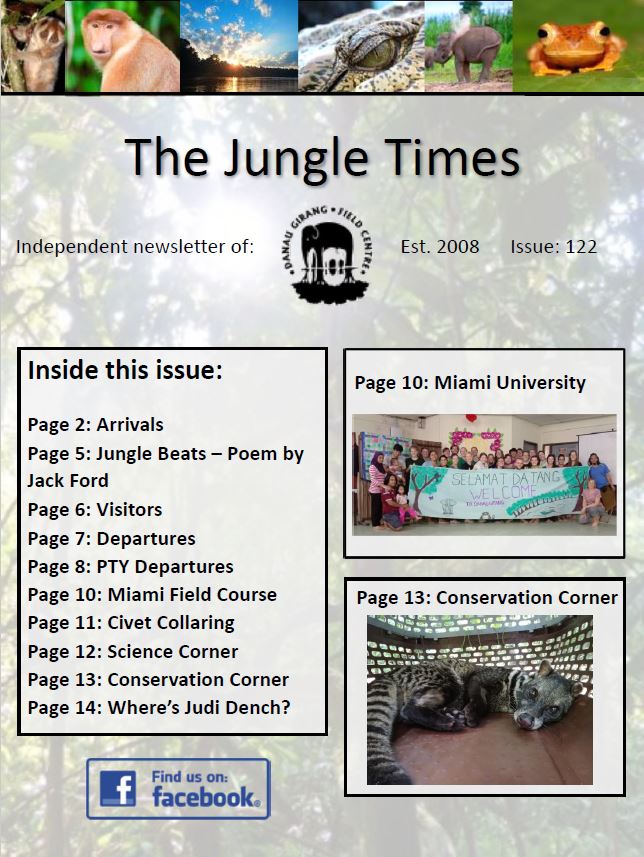 June 2019
June 2019